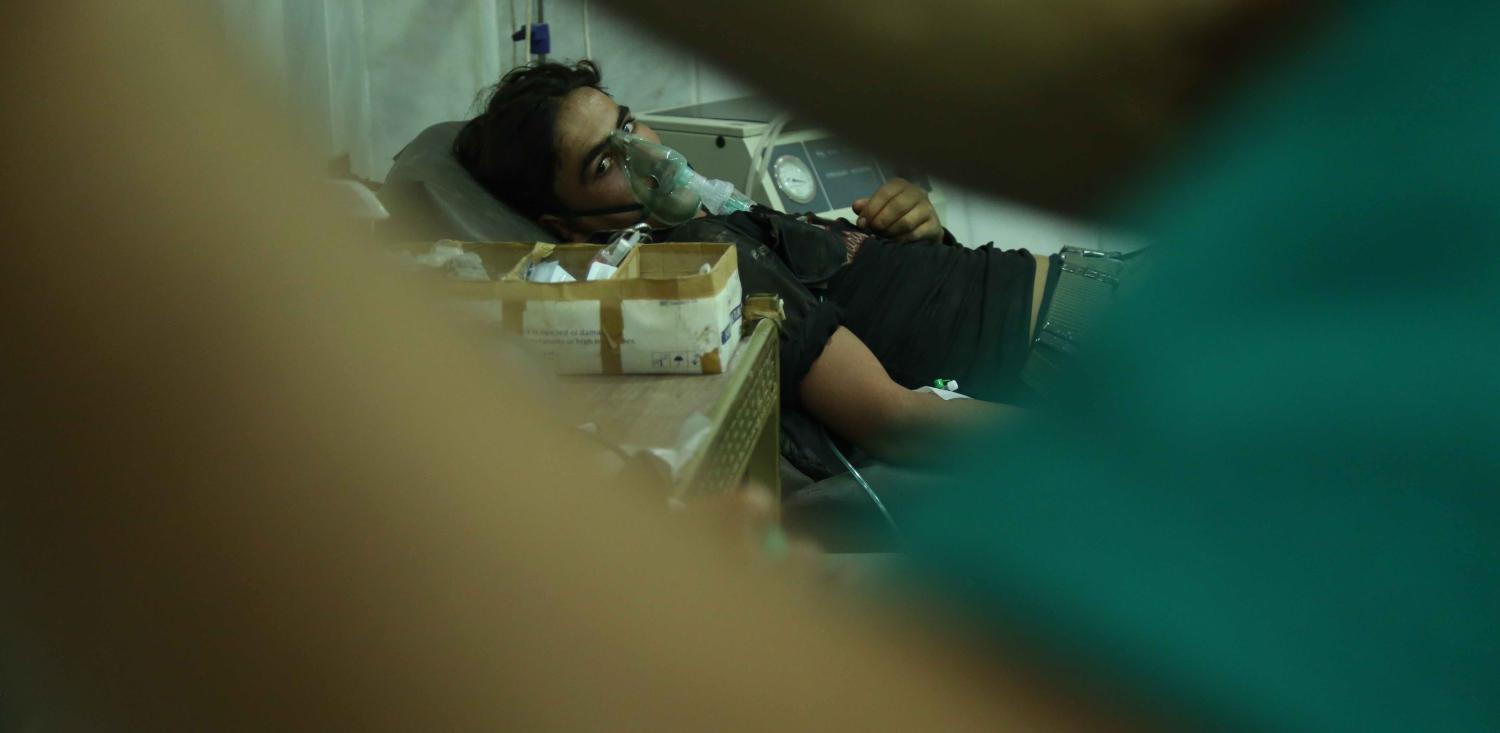Last month, France hosted the launch of the International Partnership against Impunity for the Use of Chemical Weapons. The effort is aimed at holding to account individuals and groups in the Syrian Government responsible for chemical weapons attacks, and to deter any possible further use of these weapons. France also imposed sanctions on individuals and companies for having links to Syrian chemical weapons activities.
Mandate expired
In 2015 the UN Security Council established the Organisation for the Prohibition of Chemical Weapons (OPCW)–UN Joint Investigative Mechanism in Syria (JIM) with a mandate to determine responsibility for chemical weapons use in Syria. Two years earlier, Syria had joined the Chemical Weapons Convention amid competing and contradictory chemical weapons use allegations. The allegations, some confirmed, have persisted to the present.
The JIM mandate expired in November, a consequence of political disputes in the Security Council and the OPCW Executive Council as to whether the Syrian Government is responsible for any of the attacks. Russia, in particular, has maintained that only opposition groups have used chemical weapons.
Despite this, investigations continue: the OPCW has a Declaration Assessment Team examining the completeness and correctness of Syria’s declarations, while a Fact Finding Mission continues to collect and evaluate information on allegations of chemical weapon use. For example, a team visited Damascus for several days in January and transported biomedical and environmental samples back to the OPCW laboratory.
The initiative
The launch in Paris was attended by approximately 25 state representatives, including Australia, with civil society groups briefed beforehand. The initiative is described as a partnership of around 30 countries and international organisations, and has a dedicated website to name and shame those individuals subjected to sanctions. Its declaration of principles was drafted jointly by France, Germany, the US and Britain. US Secretary of State Rex Tillerson used the occasion to criticise Russia for not living up to its role as a guarantor of Syria’s CWC obligations. He warned:
This initiative puts those who ordered and carried out chemical weapons attack on notice. You will face a day of reckoning for your crimes against humanity and your victims will see justice done.
Russia was quick to criticise the restricted format of the meeting, stating it had been excluded from the initiative and that the exercise was an attempt “to create an anti-Damascus bloc through the proliferation of lies”.
Who takes the lead?
How the priorities of civil society groups and governments will “mesh” at initiative meetings, and the procedures by which they will agree on positions, is not yet clear. Although there is a Declaration of Principles agreed on by the parties, it is not known who will hold ultimate authority to determine ethical and legal standards when uploading information about targeted individuals. The lists of sanctioned parties complied by individual countries do not fully align, and national intelligence services will naturally wish to ensure that their sources and methods are protected.
This will place limits on the ability of participants to assess the technical basis for reaching conclusions about the accountability of some individuals. As the number of governments who participate in the partnership rises, problems associated with reaching common understanding on the source and use of intelligence information may become especially challenging. Civil society groups also hold widely divergent understandings and priorities that may, in practice, be difficult to reconcile.
The information gathered by this initiative will also seek to compile evidence of crimes against humanity and war crimes. This effort could inadvertently prompt a curtailing of OPCW verification efforts out of concern such information could inform target lists for prosecution by other bodies.
Great power rivalry
Geopolitics also plays a role. The Syrian Government is, a priori, held blameless by some states for any chemical weapons use. Most governments informally are willing to accept that the Syrian Government is responsible for some chemical weapon attacks, but some of them do not wish to become entangled in a Russia–US dispute at the OPCW, UN, or elsewhere.
Many governments take the view that if others reflect their position at multilateral disarmament and arms control forums, they need not take a public stance. The analytical intelligence and security capabilities of governments also vary. Given the complexity of the task, some governments do not necessarily have the capacity (or the will) to draw their own analytical conclusions, much less act on them.
The French initiative is a commendable effort bringing together civil society and governments to ensure that the global norm against chemical warfare is not undermined. However, the imposition of trade-related sanctions should not become a de facto substitute for legal accountability for chemical weapons use.

